Takayuki Suzuki has competed in six consecutive Paralympic Games since the Athens 2004 Paralympic Games, and at the Paris 2024 Paralympic Games, he won four medals, including one gold. He is a para-swimming legend, with a career total of 14 Olympic medals. He first began swimming competitively in high school. Why has he continued to compete on the global stage for 20 years since then, and how does he continue to evolve at the age of 37?
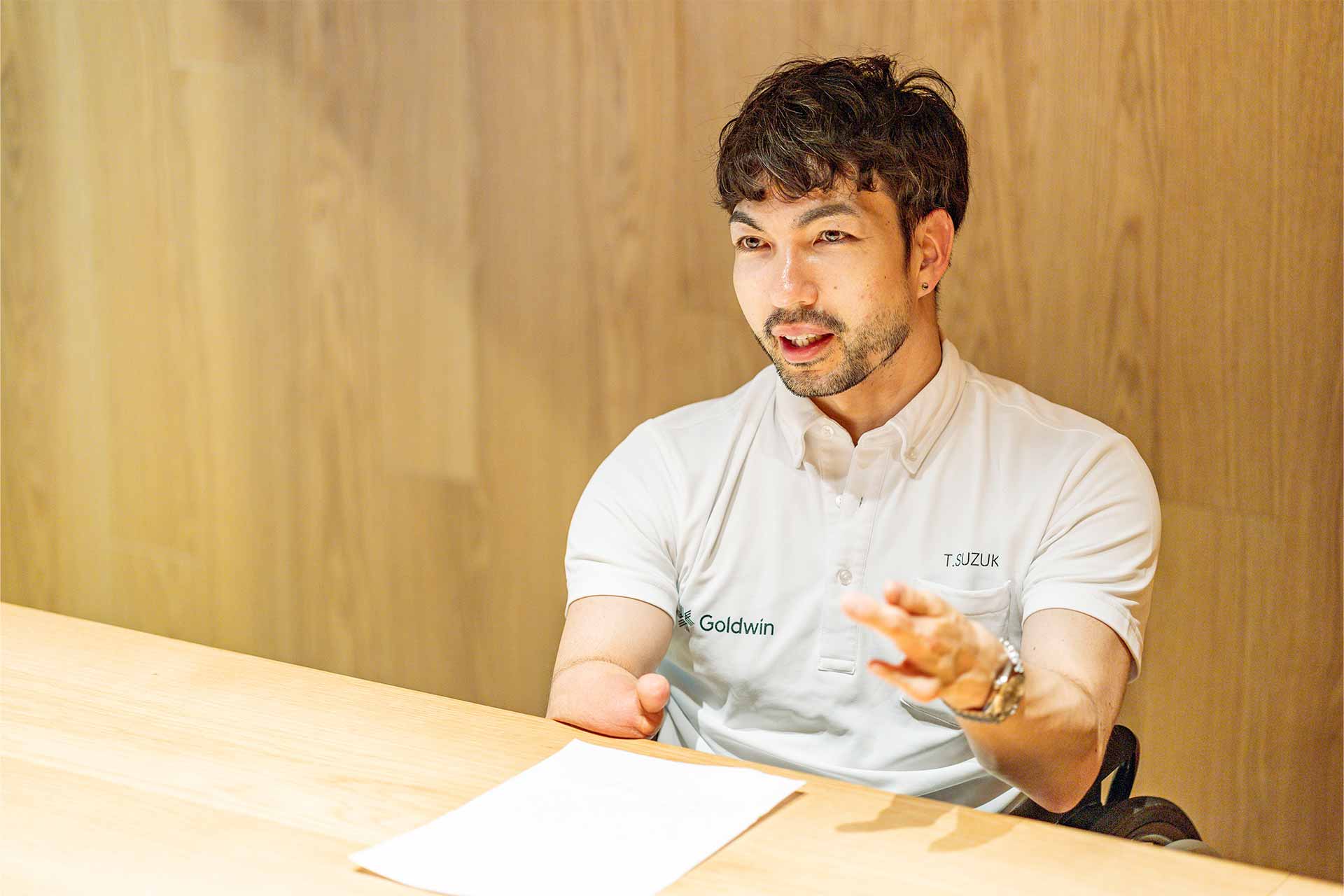
It seems that you started learning how to swim even before you started elementary school. What was it that made you decide to pursue it more seriously after that?
“I went to a swimming school from age 6 through around the fifth grade of elementary school. After that, I got interested in brass instruments, so I joined the Brass Band Club in junior high school. It wasn’t until high school that I really got into swimming. I was in the college prep course, which meant tons of studying, so stress would build up. I went swimming for the first time in a long time to let off some steam, and it just felt really good. I then started going again to the swimming school for disabled children that I had gone to when I was little.”
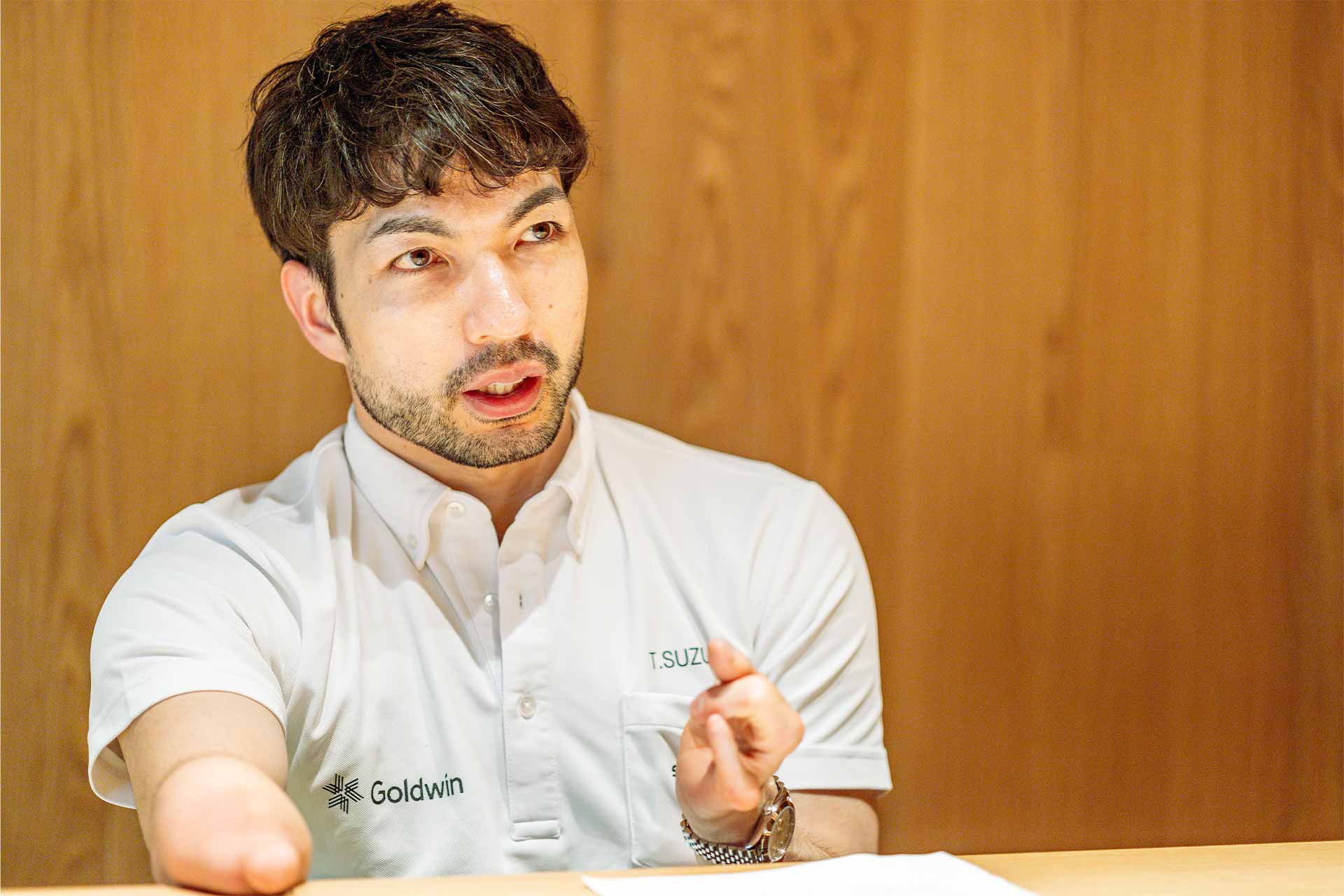
What was the reason for choosing a swimming school for people with disabilities?
“One reason was that it was the same school I went to when I was in elementary school, and also that I had placed first in a para-swimming competition. Experiencing the thrill of victory was a big deal for me. It made me very happy, and I really enjoyed it. I was able to win a gold medal at my first national competition, which also helped build my self-confidence.”
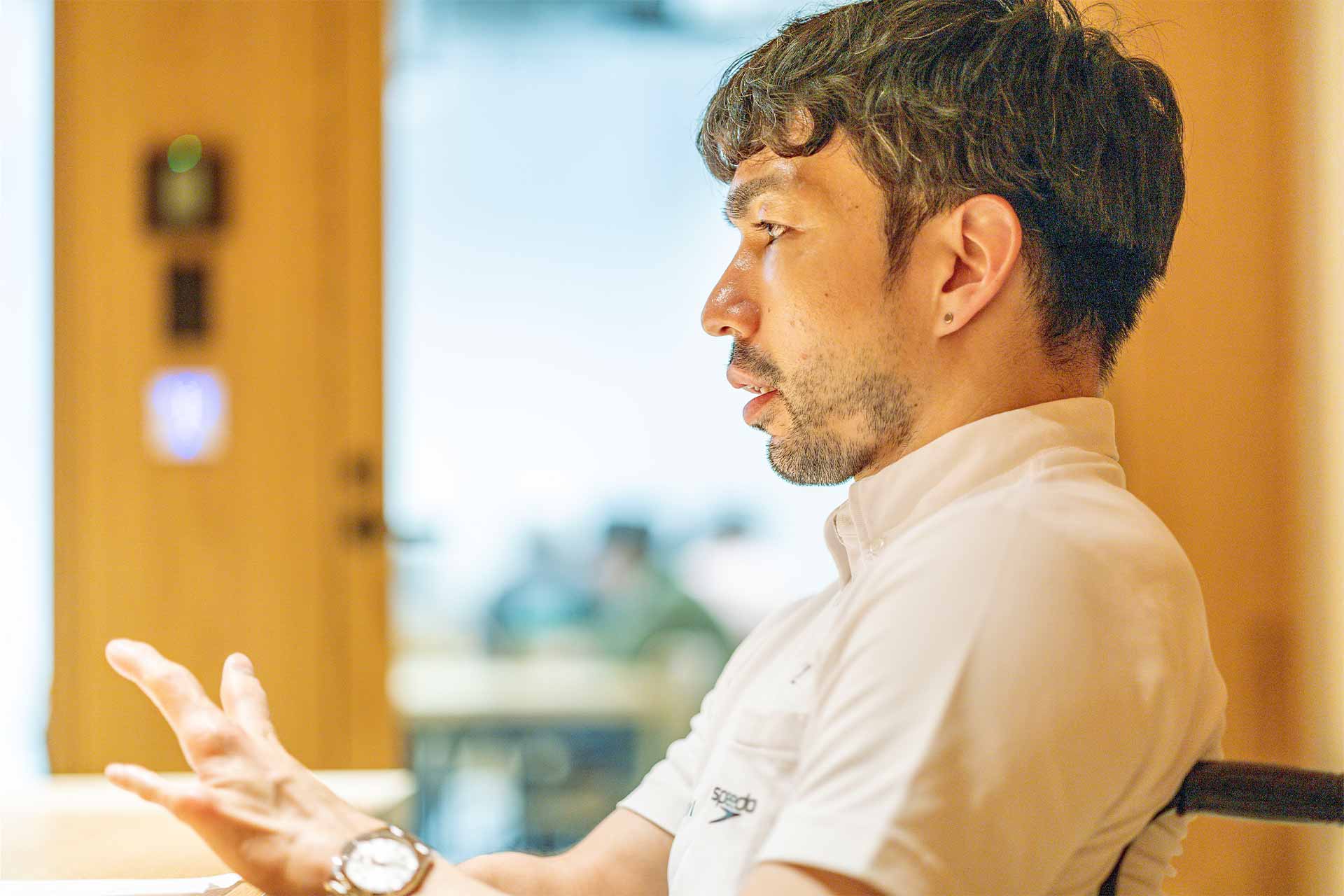
What aspects of para-swimming do you find appealing?
“I like how you think about using your whole body, even taking your own disabilities into consideration, and using it to swim faster and develop your own swimming style. I’m missing my right arm from the elbow down, and also both of my legs, so I’m a front-runner when it comes to the breaststroke. I dive in as far as I can, get to the front after I surface, and then just swim as hard as I can to keep from being overtaken. In the freestyle, on the other hand, my style is to catch up with other swimmers that use their legs to increase their lead. Of course, a lot of times it comes right down to the final touch, but I really like the intensity of the competition right up until the end. Each swimmer uses their body differently and has their own strategies, and there are also lead changes as the races progress, which makes it worth watching.”
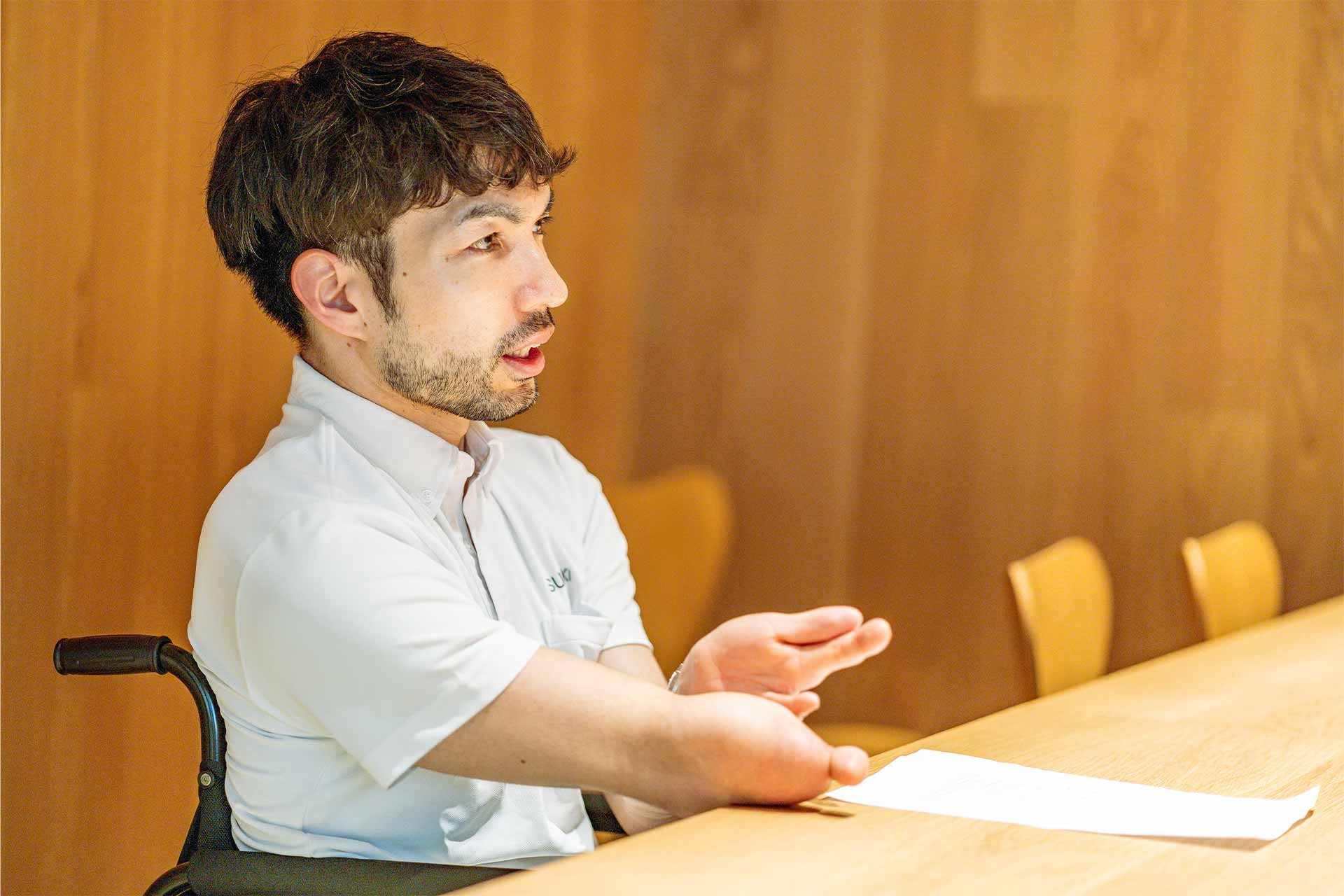
At the Athens 2004 Paralympic Games, you competed for the first time at the age of 17. You came away with a silver medal in the Men’s 4 x 50m Medley Relay.
“I was still in high school at the time, and I remember going into the Games feeling that they were an extension of my club activities. But when we finished with silver medals, one of the veterans on my team cried a lot. Seeing a grown man sobbing in public like that made me realize that the Paralympics weren’t a competition to go into half-heartedly.”
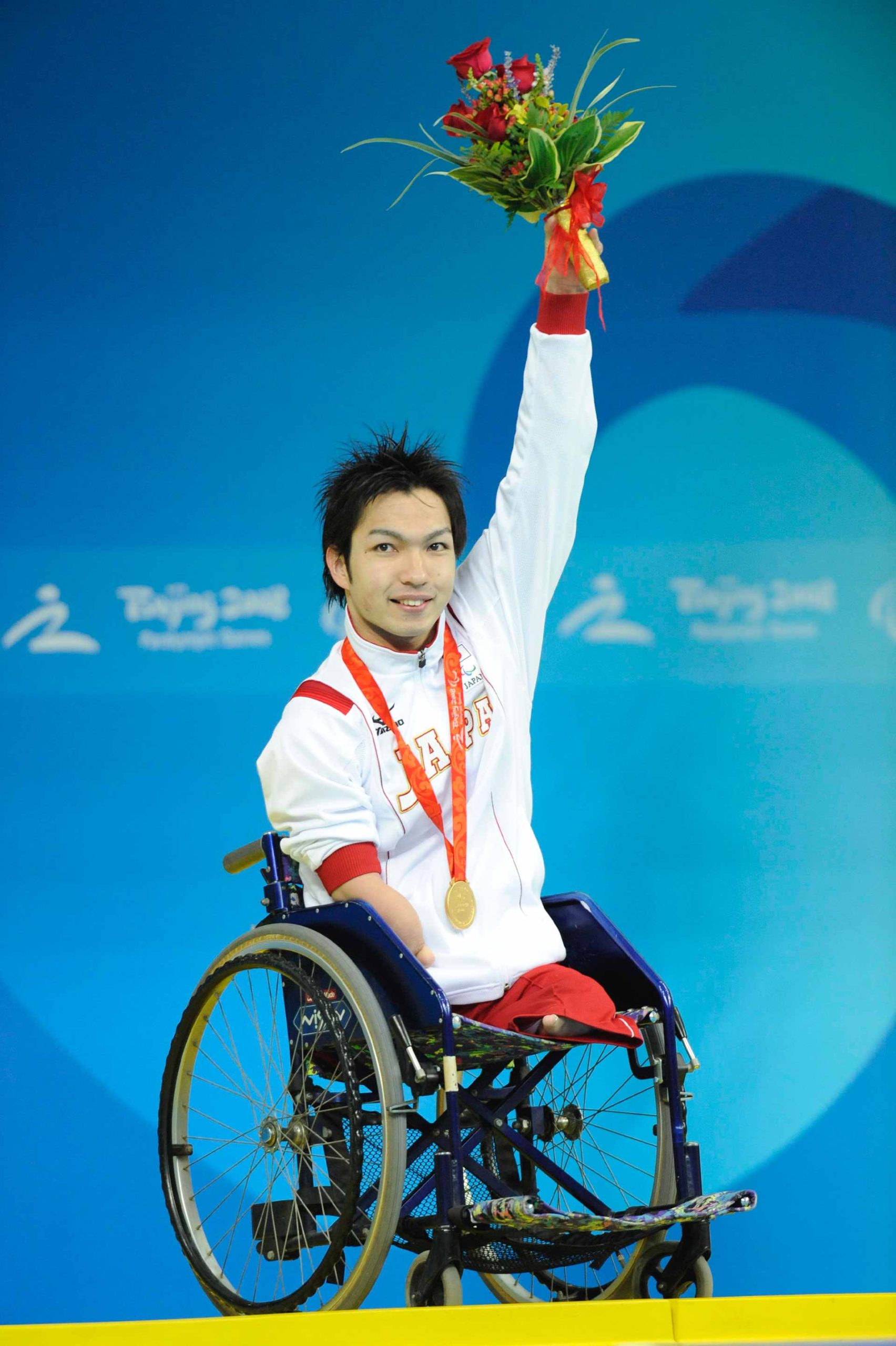
You then went on to win the gold at the Beijing 2008 Paralympic Games in the 50m Breaststroke (SB3). In the qualifiers you set a world record (at the time) of 48.49 seconds, making you the top swimmer in the world.
“I still remember the scene at the medal ceremony. There was all this loud cheering, and I made my way to the top spot on the podium. Once I got to the top, I saw a packed auditorium, and in the crowd were family and friends that had come all the way from Japan to cheer me on. It was also nice to see everyone so happy.”
You’ve been active as an athlete for 20 years, but is it true that there was also a time when you were thinking of retiring?
“Right after the Rio 2016 Paralympic Games, where I didn’t get a single medal, the thought of retirement had crossed my mind. However, I still had two years left of studying in England, so I decided to try some training that I hadn’t tried before, and if that didn’t improve my times, I would make my decision then. From there, I incorporated weight training, nutrition, and psychological counseling, and I also tried changing the way I swam and breathed. That’s when my times started getting better and better. Two years after the Rio 2016 Paralympic Games, I won five titles at the Indonesia 2018 Asian Para Games. That helped me be able to aim for the Tokyo 2020 Paralympic Games with confidence.”
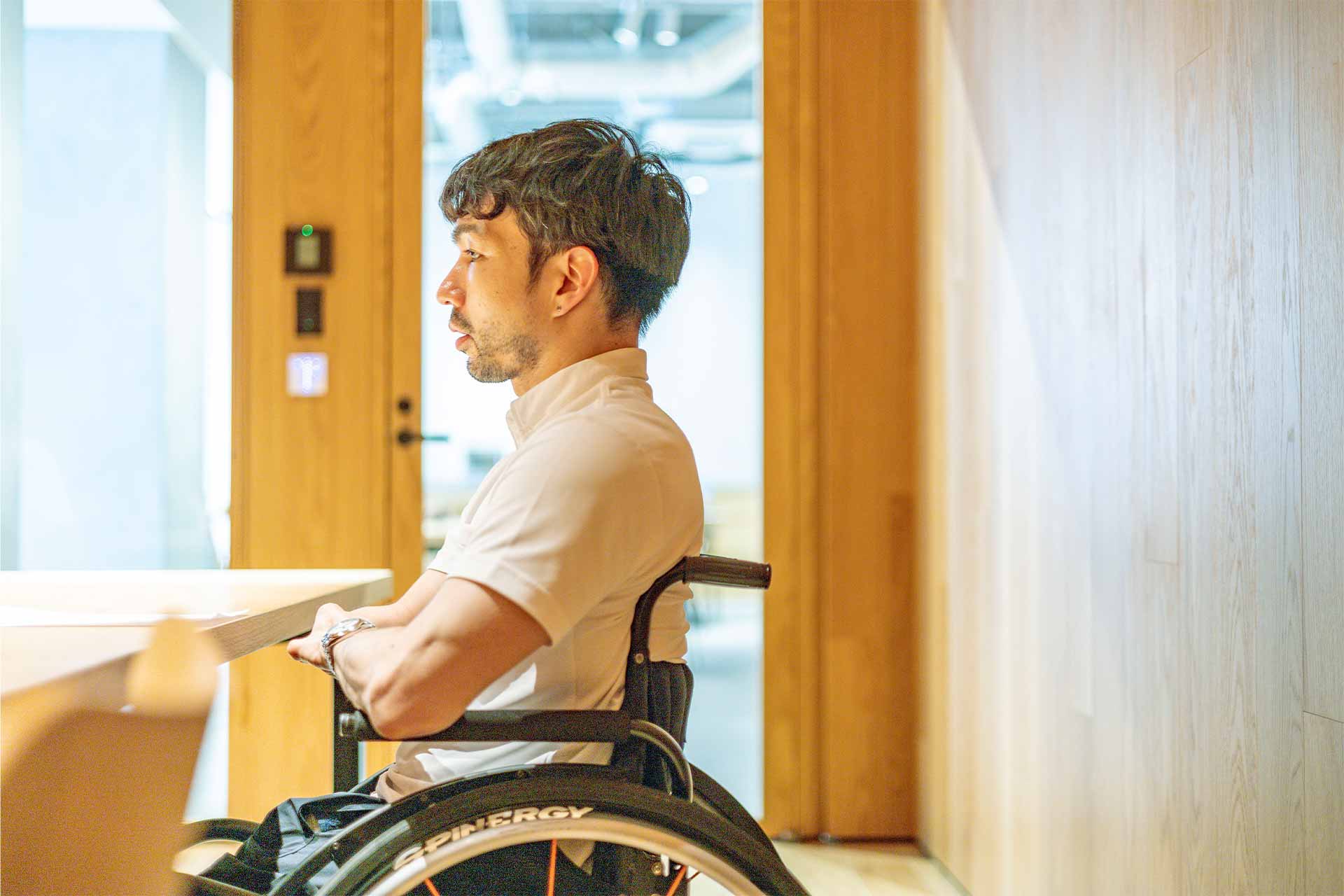
At the Tokyo 2020 Paralympic Games, you made a spectacular comeback, showing the world just how dominant you could be by winning five medals, including a gold medal in the 100m Freestyle (S4).
“Since I made the decision to compete, I was determined to get a medal no matter what, so I guess that’s why I did as well as I did. In my case, I don’t think that I’ll be satisfied just by taking part in the Games or treating it as some special memory in my life. My role is to go to the Paralympics and win medals. I still feel that when I become no longer capable of doing that, I should step aside and let the next generation take my place.”
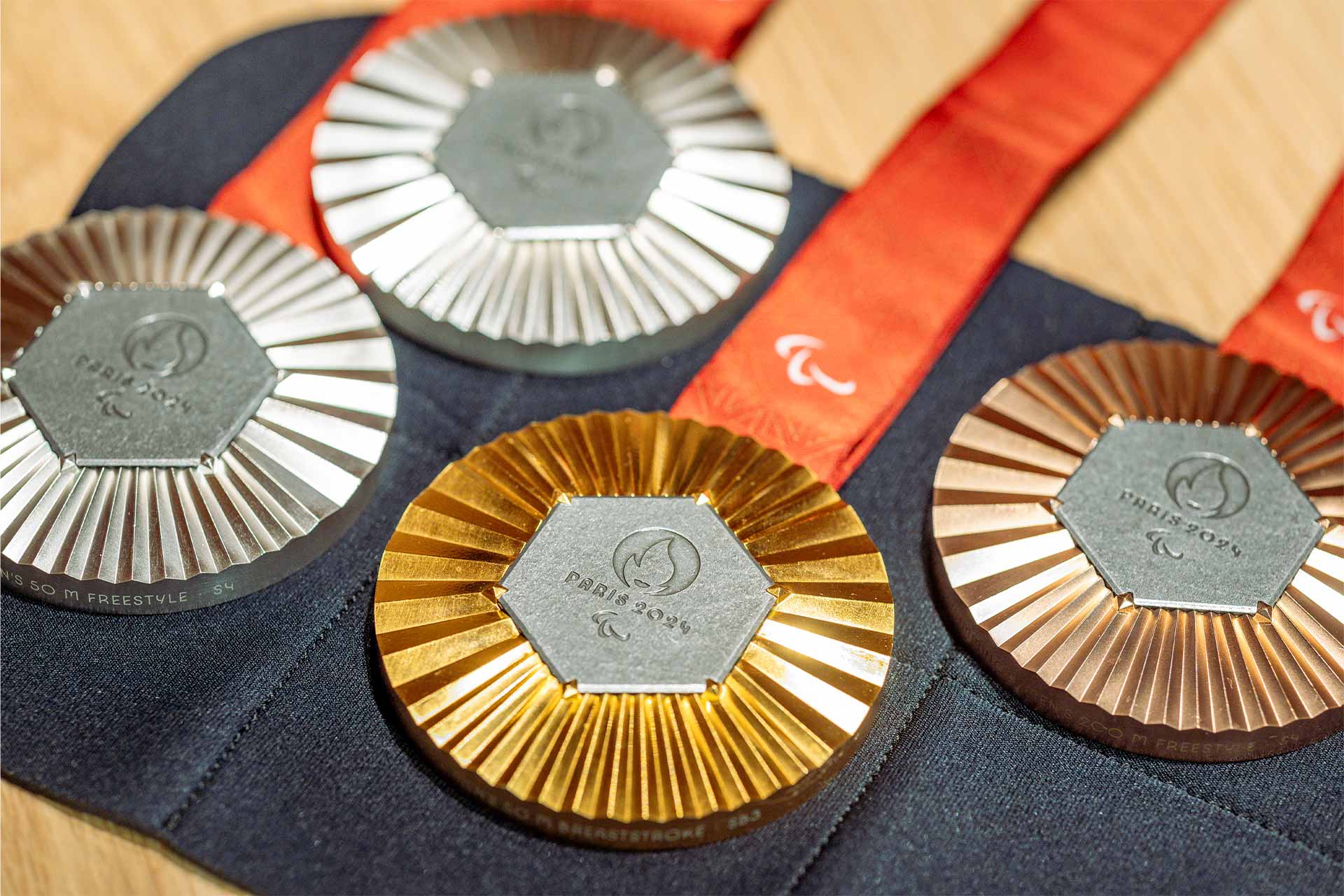
At the age of 37, you participated in the Paris 2024 Paralympic Games, where you won four medals and set new personal bests in two events.
“As for my personal best, to be honest, I didn’t think I had it in me. The target times, which my coach told me before the competition, were 48.0 seconds for the 50m Breaststroke (SB3) and 36.8 seconds for the 50m Freestyle (S4). Those times were faster than I’d even imagined. But it turned out that my results were right around those times, and in the 50m Breaststroke my time beat my record from when I was 21 years old. I was impressed that I could do that, but I was also impressed by my coach for telling me those were my target times.”
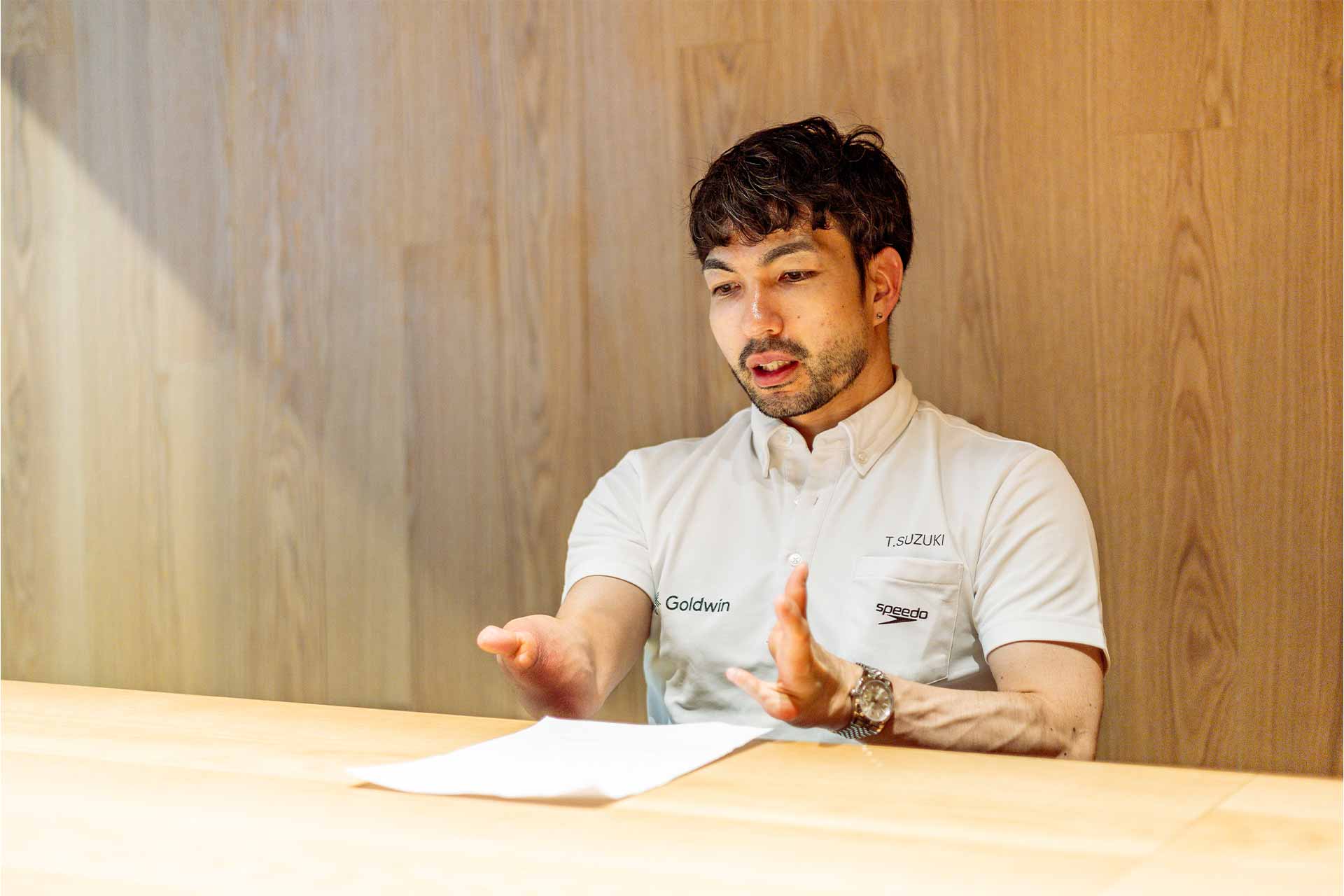
The record-breaking results and medal rush are especially impressive considering how grueling of a schedule it must have been to compete in five events.
“At competitions, it’s important to plan how to spend your time at the venue based on the event schedule and to create the best possible condition. In fact, after my race on the first day, I only had a little bit of time before the qualifiers for the 100m Freestyle the next day. Taking into consideration moving between the accommodations and the stadium, I made some time-saving adjustments by doing things like eating my meals at the accommodations instead of at the Olympic Village to ensure that I could have enough time to sleep.”
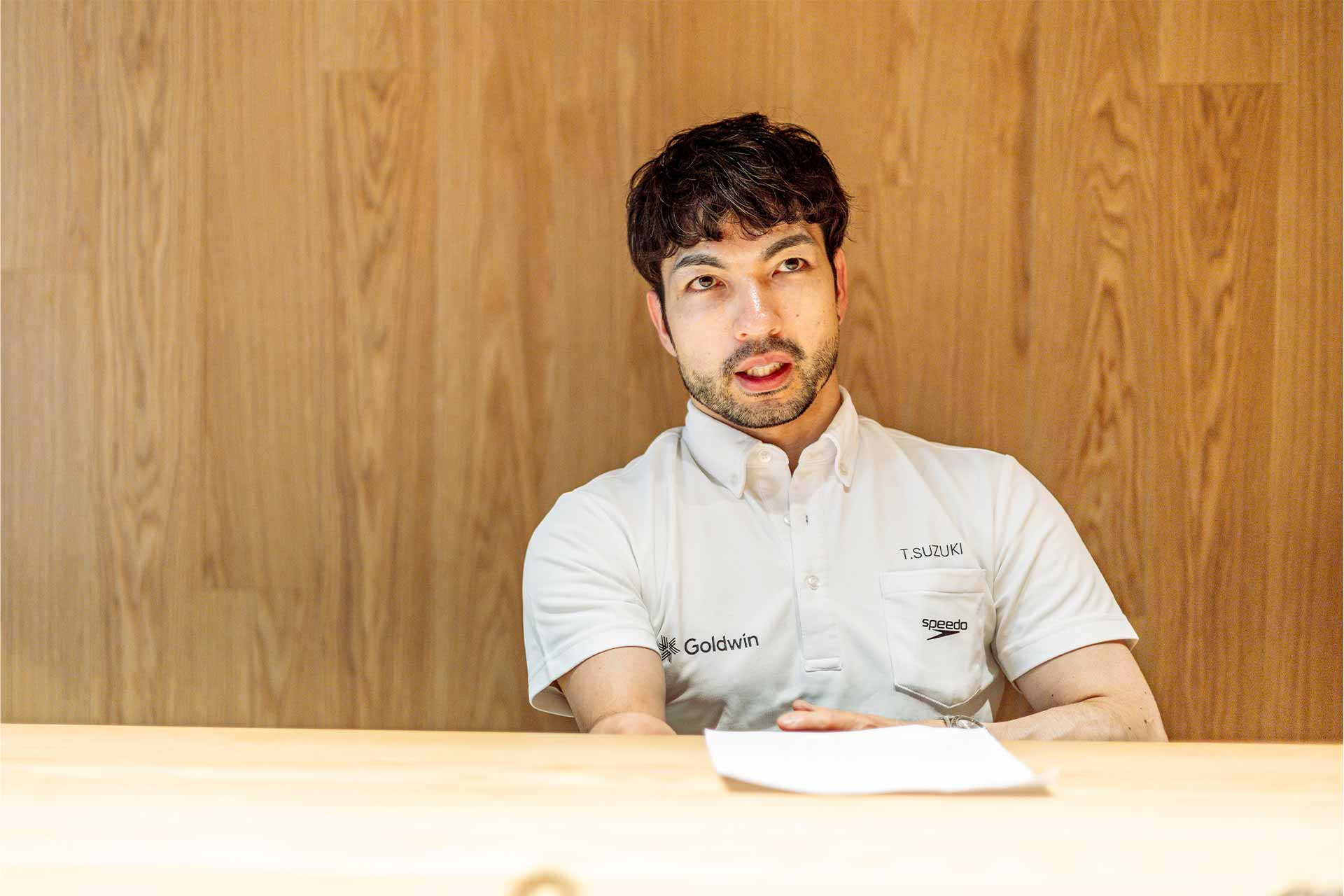
Your attitude towards competitions is one of a true veteran. This time, as the oldest member of the team, you were also in the Medley Relay.
“I was the youngest member of the relay team at the Athens 2004 Paralympic Games, and that was where I learned from my seniors how difficult and also exciting it is to win a Paralympic medal. So now that I’m in their position, I try to express how I feel through my words and actions so that the younger members can feel something, too. In particular, many times I’ve told them, ‘What you’ve practiced is all that will show in the real competition.’ We got 7th place in the Mixed 4 x 50m Medley Relay. I’m looking forward to seeing how the younger members will take this experience of not being able to win medals when giving just a half-hearted effort and use it to guide them in their future endeavors.”
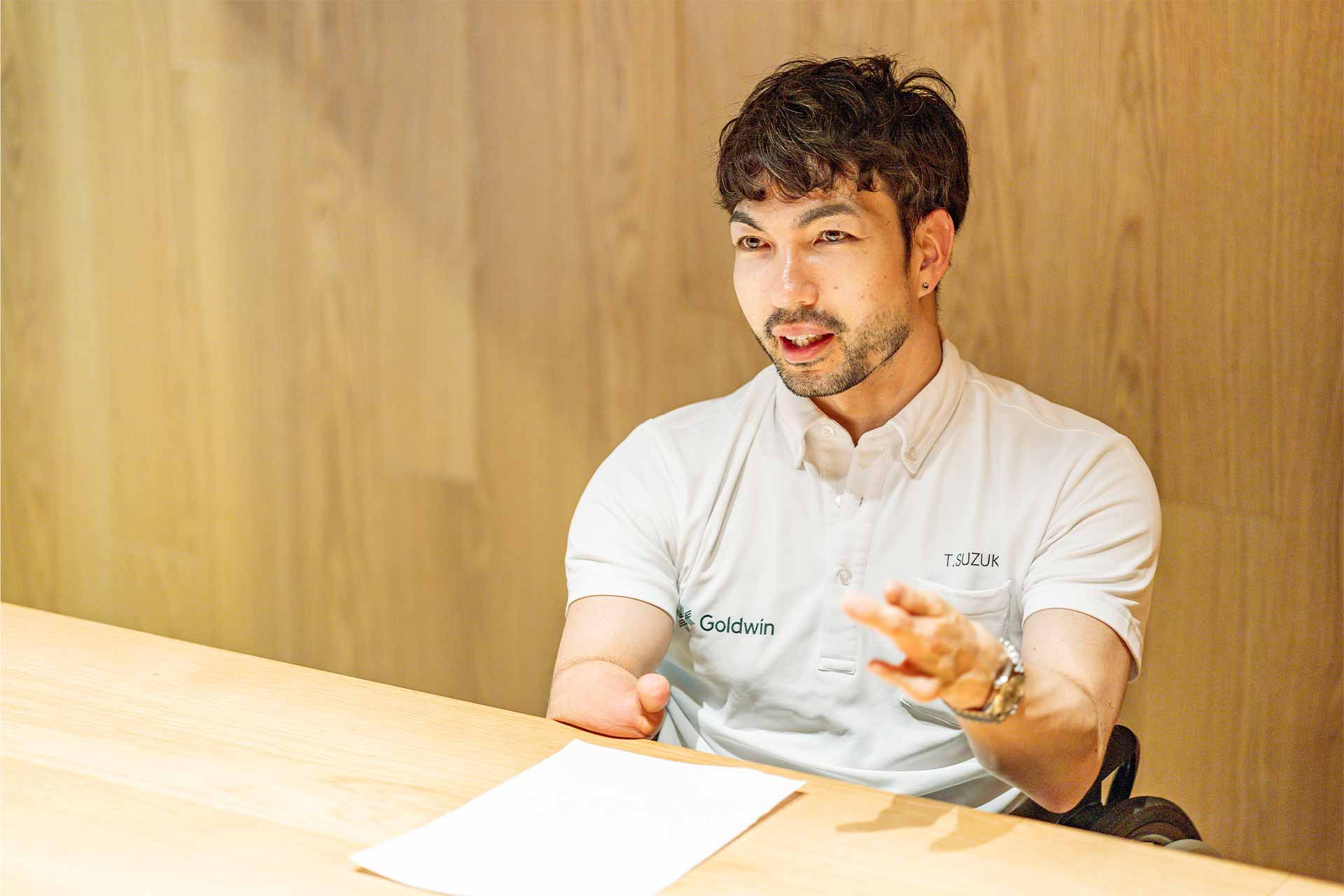
There is a great deal of attention being paid to your efforts going forward.
“With regard to competitions, I’ve decided to also take part in domestic competitions until the end of the year. And as a new challenge, the Suzuki Takayuki Cup was held on November 24. It’s an inclusive competition where athletes of any kind, both with and without disabilities, swim the best they can with the same goal of winning medals. It was held for the first time, and it was only a one-day event, but I’m hoping to expand the scale of it and make it an internationally sanctioned event in the future.”
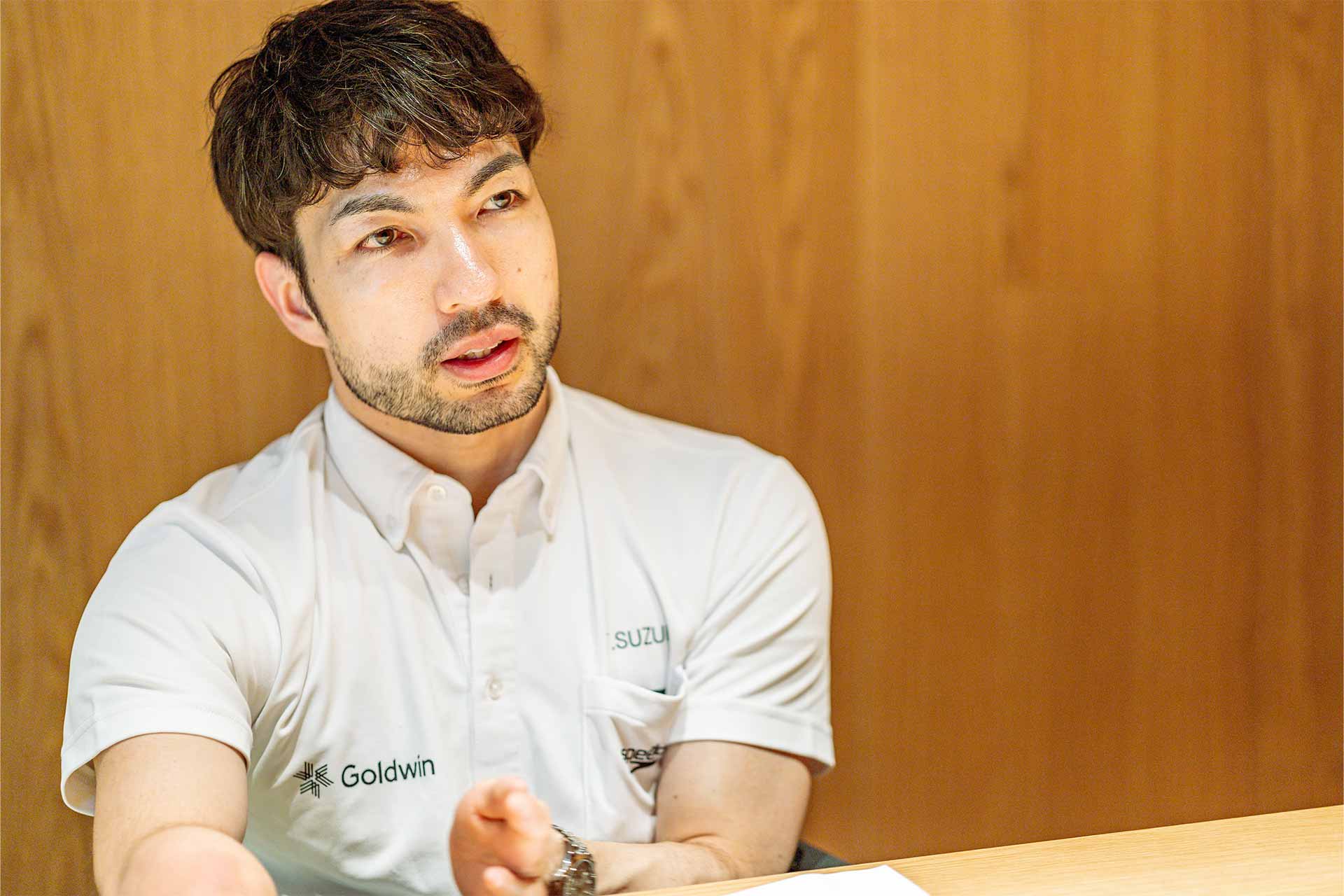
These efforts of yours are likely to be a step forward on the way to an inclusive society.
“I often use the term ‘barrier-free mindset’, and since physical ‘barrier-free’ accessibility has become more widespread in Japan, I think what needs to be focused on more now is the intangible aspects of it. Living in Japan, I sometimes can’t help but notice that there are a surprisingly large number of non-disabled people who seem hesitant to help people with disabilities. My hope is that we can create a society where people can talk to one another without hesitation. I also hope that we can live in a world where everyone can work in a way that plays a role in society.”
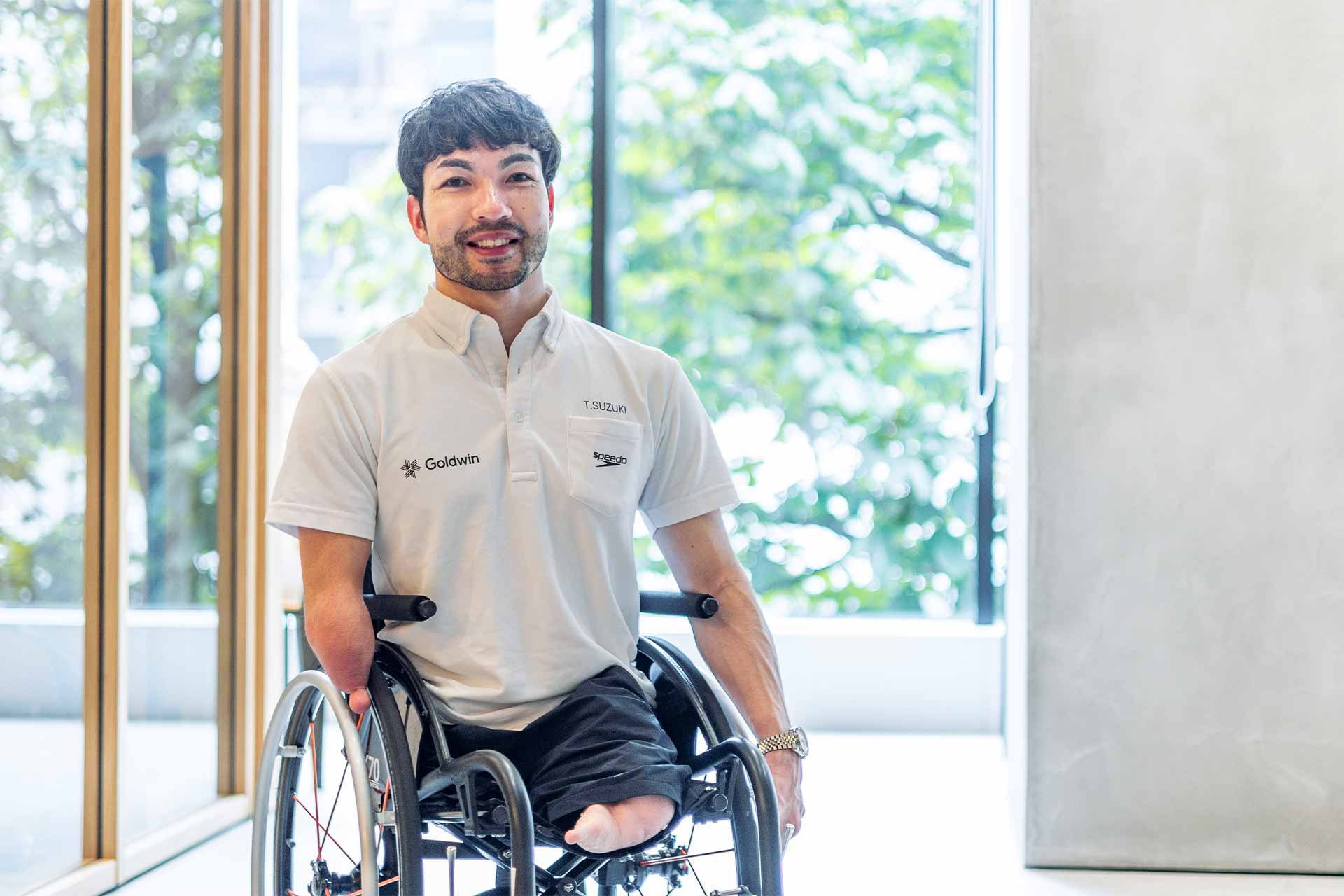
Having also lived in England, what you do think are some of the appealing aspects of Japan?
“Tokyo and other urban areas have come a long way with their barrier-free access, and there are also train station staff on hand to help you with getting on and off the train, which makes getting around much smoother. Train delays are rare as well, and that’s especially helpful for people who get around in wheelchairs. And of course, the food is some of the best in the world. Japanese-style pubs called ‘Izakaya’ offer signature dishes at reasonable prices, so I definitely recommend having a meal there. There’s a wide variety of alcoholic drinks, Japanese food, and cheap eats to enjoy, and you get really good quality for the price. I think it’s something that everyone, whether Japanese, foreign, local, or tourist, can enjoy.”
<Profile>
SUZUKI Takayuki
Born in 1987 in Shizuoka Prefecture. He has limb deficiencies due to a congenital disability. He started learning how to swim at the age of 6 and took it up seriously in high school. He is a graduate of the Waseda University School of Education. In 2009, he began working at Goldwin Inc. He has competed in six consecutive Paralympic Games, from Athens 2004 at the age of 17 to Paris 2024, winning a total of 14 medals. At the Paris 2024 Paralympic Games, he competed in five events, winning gold in the Men’s 50m Breaststroke (Physical Impairment SB3), silver in the Men’s 100m Freestyle (Physical Impairment S4), bronze in the Men’s 200m Freestyle (Physical Impairment S4), and silver in the Men’s 50m Freestyle (Physical Impairment S4). He was awarded the Medal with Purple Ribbon in 2021 and again in 2024.